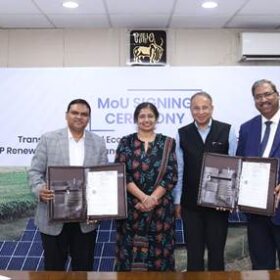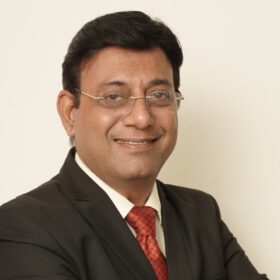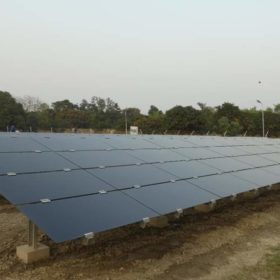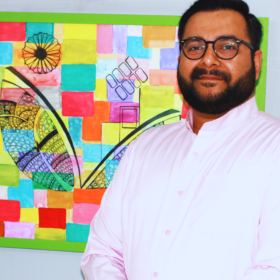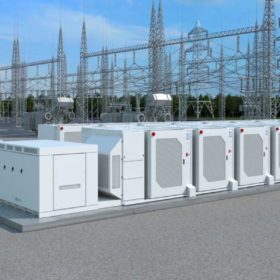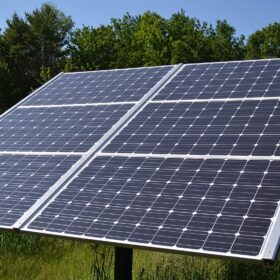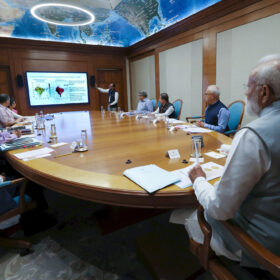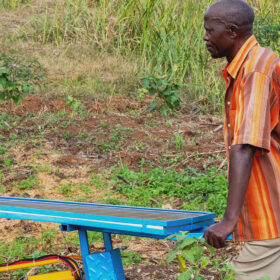Tata Power’s microgrid arm partners with National Dairy Development Board to solarize milk value chain
TP Renewable Microgrid Ltd and National Dairy Development Board will collaborate to enhance sustainability and operational efficiency within the milk value chain. This includes the solarization of dairy cooperative societies, bulk milk coolers, and milk chilling centers, facilitated by solar microgrid technology.
The role of renewable energy in achieving India’s net zero goals
The road to net-zero emissions in India doesn’t require herculean efforts. We can get there by wholeheartedly adopting renewables, investing in innovation and technology, and promoting public-private partnerships to build a better, cleaner, and more sustainable India for generations to come.
Nigeria’s Rural Electrification Agency, Husk Power Systems partner to deploy 250 MW of decentralized renewable energy projects
Nigeria’s Rural Electrification Agency has partnered Husk Power Systems for inter-connected minigrids and isolated minigrids, rooftop commercial and industrial (C&I) solar, productive use of energy (PUE), and appliance sales and financing.
The rise of solar co-ops: Collective action for installation advancement
Ishan Chaturvedi, director and co-founder at Vareyn Solar , talks about harnessing solar power with solar cooperatives in India.
IEA calls for sixfold expansion of global energy storage capacity
The International Energy Agency (IEA) has issued its first report on the importance of battery energy storage technology in the energy transition. It has found that tripling renewable energy capacity by 2030 would require 1,500 GW of battery storage.
AfDB identifies key priorities for minigrid deployment in Africa
An African Development Bank (AfDB) report covering critical takeaways from the ARE Energy Access Investment Forum 2023 says that challenges in financing, policy, technology, and skills enhancement must be overcome to support the deployment of distributed renewable energy minigrids across Africa.
Husk Power Systems secures additional $4 million in debt financing from ElectriFI
Husk has secured an additional $4 million in debt financing from ElectriFI, the EU-funded impact investment facility, further building upon ElectriFI’s initial $6 million investment in September 2022.
India’s ruling party pledges renewables, manufacturing focus in its poll manifesto
India’s ruling party Bharatiya Janata Party (BJP) has vowed continued focus on renewables, energy storage and electric mobility with a view to achieving energy independence for the nation by 2047.
Husk Power secures $20 million in debt financing from European Investment Bank
Husk Power will use the fund for the construction of community solar minigrids in Nigeria, installation of rooftop solar for commercial & industrial (C&I) customers, expansion of appliance sales to households and small businesses, and the scaling of value-added services such as agro-processing and e-mobility.
After-sale support key to boosting off-grid solar
A new survey from US-based impact measurement company 60 Decibels shows off-grid energy customers are currently facing a series of challenges such as product affordability, gender inequality, customer support, further investment in minigrids, and over-indebtedness. The report, however, reveals that most users say the quality of their lives “very much improved” thanks to off-grid PV.
